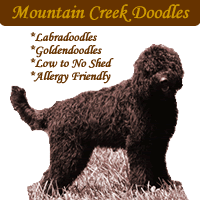| |
|
|
 Antifreeze Types
Antifreeze Types
I am an old water treatment guy too... from hemodialysis chapter of my life.
What AC5ZO is referring too we used to call "hungry" water. The cleaner and purer it gets the more it wants pull metals and other ionic components out of the pipes.
Only plastic piping can be recommended for highly purified water and storage vessels likewise must be non-metallic in nature.
I don't have any direct experience with mixing purified water and various anti-freezes, but I would suspect that adding a huge load of such chemicals would alter the "hungry" properties of the purified water.
|
|
 Add Photo Add Photo
Bookmarks: |
|
|
|
|
 Antifreeze Types
Antifreeze Types
You are correct, Mark.
I don't know how all the additives in commercial antifreeze will affect that "chemical potential" but it stands to reason that the corrosion inhibitors would keep the metal from being pulled into solution.
I just did not want someone looking at this thread and putting distilled water in their radiator and then complaining about leaks six months later.
I found the following information about the various types of antifreeze and there is specific reference to not mixing old and new formula antifreeze because the corrosion inhibitors are chemically incompatible.
Link:
|
|
 Add Photo Add Photo
Bookmarks: |
|
|
|
|
 Antifreeze Types
Antifreeze Types
Here is another link. They are not so negative about the chemical incompatibility, but rather state that adding green conventional anti-freeze will negate the corrosion inhibiting properties of the long life anti-freeze.
Link:
|
|
 Add Photo Add Photo
Bookmarks: |
|
|
|
|
 Antifreeze Types
Antifreeze Types
Well it has been a great ride but it looks like I have may answer in the link from the U of Tenn. :
"Toyota uses a red antifreeze in many of its products and should not be confused with the orange type long life antifreezes. it is essentially the green type of antifreeze that contains red dye to give it the red color."
So what I have is the Toyota Red version of the old green standby. Now I know what to get.
Dennis
|
|
 Add Photo Add Photo
Bookmarks: |
|
|
|
|
 Antifreeze Types
Antifreeze Types
Seems weird that Toyota is using a Red dye that just creates confusion with the long life stuff or maybe that was the purpose, to look like long life?
|
|
 Add Photo Add Photo
Bookmarks: |
|
|
|
|
 Antifreeze Types
Antifreeze Types
The extended life antifreeze is called Dex-Cool.
|
|
 Add Photo Add Photo
Bookmarks: |
|
|
|
|
 Antifreeze Types
Antifreeze Types
Luckily I have not added any coolant yet.
I read my owners manual ( good idea ) it says use "Toyota Long Life Coolant". This seems to indicate the coolant is not just green short life stuff died red as many places besides here have posted.
I went to Toyotas site and they say they are using a "non silicate" ethyl glycol formula, this again sounds like long life to me again, as I now believe one of the primary deltas between long and short is the silicate thing.
I guess I may just have to go to Toyota and buy their "gold" priced fluid rather than go to wally world.
|
|
 Add Photo Add Photo
Bookmarks: |
|
|
|
|
 Antifreeze Types
Antifreeze Types
Dennis: It's all about "Please buy our special TOYOTA BRAND coolant for your truck only." That's why the red color. Not many people would ask the questions you are asking, they'd just go to the dealer and pay $39.99 (or whatever) per quart and think it's something special!
|
|
 Add Photo Add Photo
Bookmarks: |
|
|
|
|
 Antifreeze Types
Antifreeze Types
As toyota is not shipping antifreeze from Japan nor do the make the stuff I am sure the Preston long life will suffice.
|
|
 Add Photo Add Photo
Bookmarks: |
|
|
|
|
 Antifreeze Types
Antifreeze Types
Peters,
That is what I was leaning towards as the Preston Long life is non silicate same as whoever Toyota is getting theirs from.
AV8R I am belaboring this because I hate buying Preston with Toyota logos, and also because of the confusing information that is available on this topic. Also at least for my Toyota the Red color = Long Life non Silicate coolant, whereas it seems some people indicate Toyota has some vehicles with silicate based red dyed coolant 
Dennis
|
|
 Add Photo Add Photo
Bookmarks: |
|
|
|



 Gas Generator Weather Protecti
Gas Generator Weather Protecti Horse Injured Polyrope Electri
Horse Injured Polyrope Electri Do electric fences keep out de
Do electric fences keep out de Any Peruvian Paso Owners Out T
Any Peruvian Paso Owners Out T gas powered post driver
gas powered post driver My new born foal is really sic
My new born foal is really sic Trailer Axle
Trailer Axle dump trailer blueprints
dump trailer blueprints Gas Generator Weather Protecti
Gas Generator Weather Protecti Went to see Dennis Reis this w
Went to see Dennis Reis this w Signs to look for prior to lab
Signs to look for prior to lab leg injury
leg injury Broodmare has welts all over h
Broodmare has welts all over h Some Christmas Humor For Horse
Some Christmas Humor For Horse poles in the ground vs. concre
poles in the ground vs. concre ever thought about moving?
ever thought about moving? new app owner
new app owner Some Christmas Humor For Horse
Some Christmas Humor For Horse Any Peruvian Paso Owners Out T
Any Peruvian Paso Owners Out T Heating a Garage
Heating a Garage Gas Generator Weather Protecti
Gas Generator Weather Protecti Do electric fences keep out de
Do electric fences keep out de gas powered post driver
gas powered post driver Trailer Axle
Trailer Axle

